Are you a proud bearded dragon owner or considering bringing one into your home? Understanding the lifespan of these remarkable reptiles is essential for providing them with a healthy and fulfilling life.
In this comprehensive guide, we’ll delve into the question, “How long can a bearded dragon live?” and explore the key factors that contribute to their longevity. From proper nutrition and habitat setup to avoiding common health issues like Metabolic Bone Disease (MBD), we’ll cover all the vital aspects of bearded dragon care.
So, let’s embark on this journey to ensure your bearded dragon thrives and enjoys a happy, fulfilling life.
Crucial Aspect that Greatly Influences a Bearded Dragon’s Lifespan
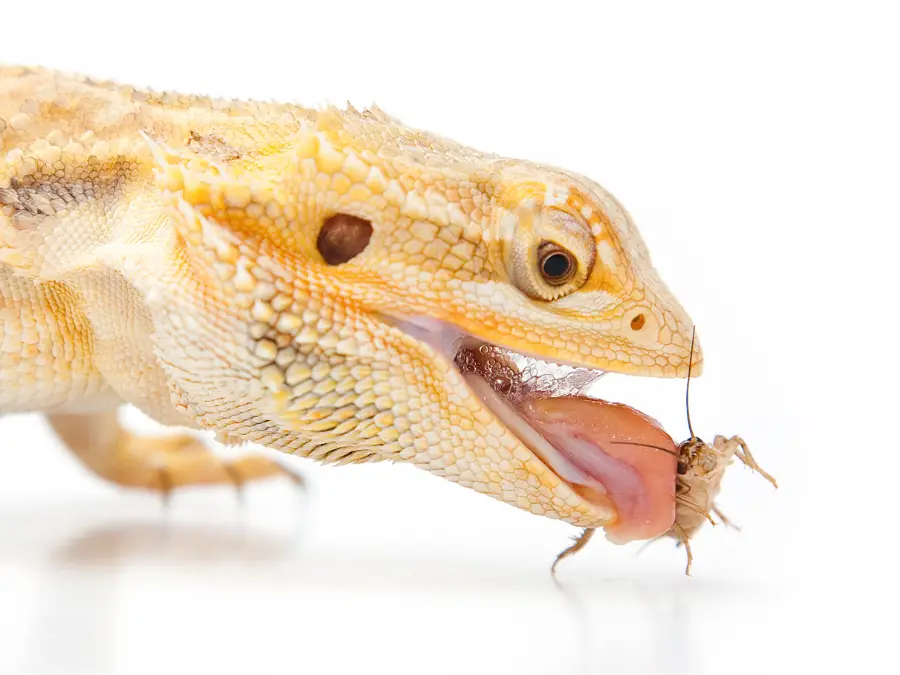
One crucial aspect that greatly influences a bearded dragon’s lifespan is its diet. From the early months of age, it’s important to establish a well-rounded diet consisting of leafy greens and other nutritious food items.
Incorporating a variety of greens such as mustard greens, dandelion greens, and turnip greens provides essential vitamins and minerals. Additionally, including live insects as a source of protein is vital, but be sure to avoid overfeeding to prevent obesity.
Bearded dragons face numerous challenges in their natural habitat, including natural predators and food scarcity during certain seasons. As responsible pet owners, it’s crucial to replicate their natural environment as closely as possible.
Providing a spacious enclosure with proper temperature gradients, heat mats, and a UVB bulb for sufficient lighting is essential for keeping your dragon healthy and happy.
Maintaining hydration is another critical aspect of bearded dragon care. Clean water should always be available in a shallow, sturdy water dish that’s easily accessible to your dragon. Regularly replenishing the water and ensuring its cleanliness helps prevent dehydration and promotes overall well-being.
Understanding the life stages of bearded dragons is essential for tailoring their care accordingly. As they transition from hatchlings to juvenile dragons and eventually reach adulthood, their nutritional needs, and environmental requirements change.
Adapting their diet, enclosure size, and lighting as they grow is crucial for their development and long-term health.
In the following sections, we’ll dive deeper into each aspect of bearded dragon care, discussing in detail the ideal habitat setup, appropriate feeding practices, common health concerns like MBD, and how to ensure your dragon’s physical and mental well-being.
So, let’s begin this enlightening journey to become a well-informed and responsible bearded dragon owner!
How Long Can a Bearded Dragon Live: Explained
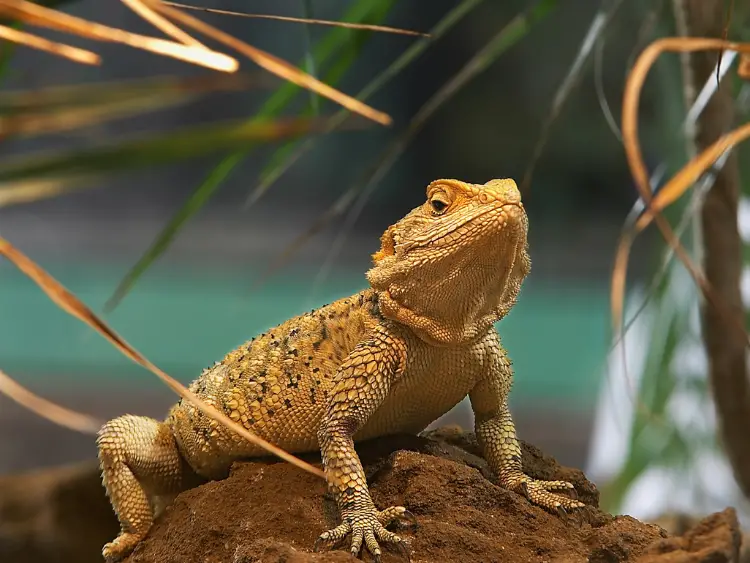
Bearded dragons are popular reptile pets known for their social and friendly nature. As a bearded dragon owner, it’s important to understand their lifespan and the factors that can influence their longevity. With proper care, these fascinating creatures can be long-term companion for you and your family.
In captivity, bearded dragons can live between 8-12 years, while in the wild, they usually live between 3-8 years due to the threat of predators and limited food availability. There are various factors such as genetics, living conditions, proper care, and diet that play an essential role in determining the lifespan of a bearded dragon.
By better understanding these aspects, you can ensure your bearded dragon’s healthier and happier life.
Bearded Dragon Lifespan
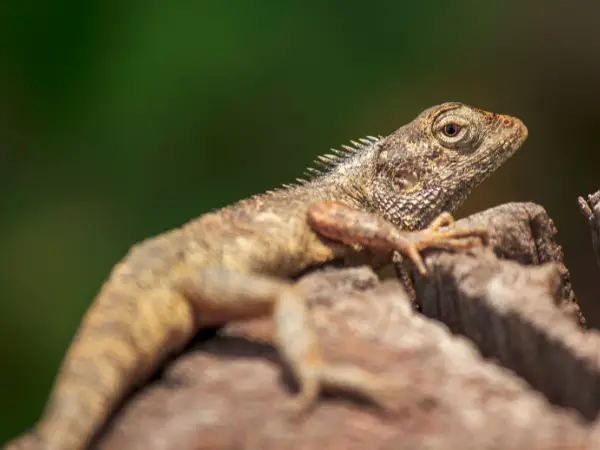
Bearded dragons are popular reptiles kept as pets due to their interesting personalities and manageable size. A crucial aspect to consider when keeping a bearded dragon is its lifespan. In this section, we’ll discuss the average lifespan of bearded dragons in captivity and the wild.
Average Lifespan in Captivity
Bearded dragons can live between 8-12 years in captivity when properly cared for. Several factors contribute to the longevity of these fascinating creatures, including:
- A balanced diet: Providing a variety of insects and vegetables ensures they receive essential nutrients for optimal health.
- Proper lighting and heat: Bearded dragons require access to ultraviolet (UVB) light and a suitable temperature gradient in their enclosure to regulate their body temperature.
- Clean living conditions: Regularly cleaning their enclosure and providing fresh water helps prevent bacterial infections and other health issues.
It’s important to note that each bearded dragon is different, and factors like genetics and overall health can influence their lifespan.
Lifespan in the Wild
In the wild, bearded dragons typically live between 3-8 years. The shorter lifespan compared to their captive counterparts can be attributed to various factors, including:
- Predation: Bearded dragons face numerous predators, such as birds of prey, snakes, and larger lizards.
- Limited food availability: Access to food in the wild can be sporadic, leading to malnutrition and a shorter lifespan.
- Lack of veterinary care: Injuries or illnesses in the wild are not treated, which can negatively impact their lifespan.
Despite the challenges they face in the wild, bearded dragons have developed unique behaviors and adaptations to survive. As pets, they can thrive in safe environments that meet their needs, ensuring they live long, healthy lives.
Factors Affecting Lifespan
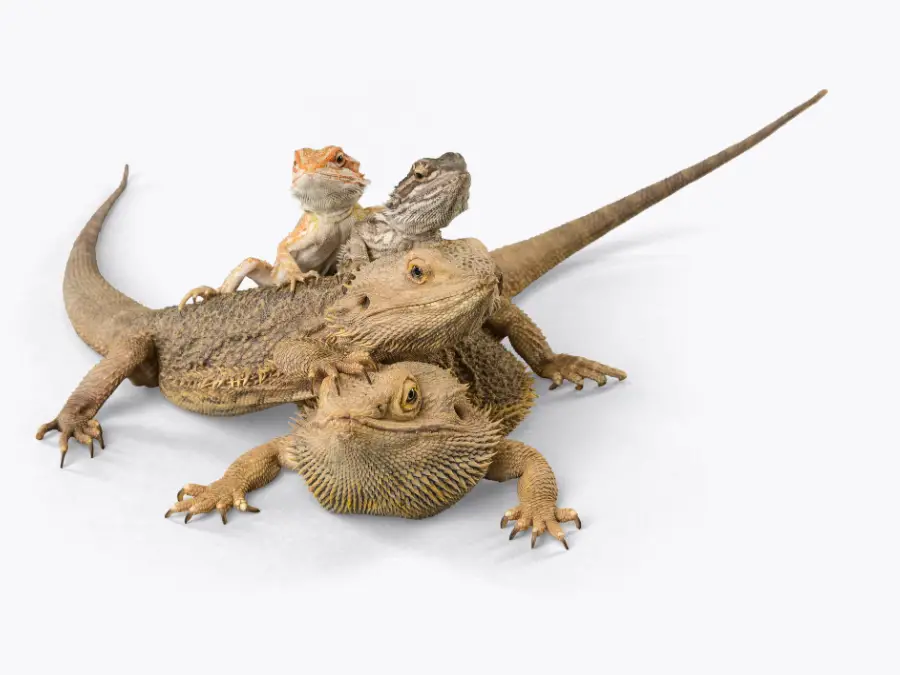
Genetics
Genetics play a significant role in determining the lifespan of a bearded dragon. Inbreeding can lead to genetic defects that may shorten the reptile’s life.
Choosing a pet from a responsible breeder can help ensure better genetic health and a longer life expectancy.
Health and Disease
Various health issues can influence a bearded dragon’s lifespan. Common diseases include metabolic bone disease, respiratory infections, and parasites. Timely veterinary care and monitoring for signs of illness can help detect and treat health issues before they become life-threatening.
Diet and Nutrition
Proper diet and nutrition are crucial for a bearded dragon’s overall health and longevity. A well-rounded diet consisting of insects, vegetables, and fruits provides necessary nutrients for growth and health.
Obesity and dehydration can also impact lifespan; ensuring proper hydration and a balanced diet can help prevent these issues.
Environment and Habitat
Creating an optimal habitat is essential for a bearded dragon’s longevity. Temperature, humidity, and lighting all impact their well-being. Keeping the enclosure clean and using appropriate substrate can help prevent respiratory issues and infections.
Maintaining proper humidity levels and providing sufficient light for their natural basking behavior contribute to a healthy environment.
Stress and Mental Health
Stress can negatively affect a bearded dragon’s lifespan. Housing more than one bearded dragon together, inappropriate handling, and inadequate hides can cause stress. Providing a stable and comfortable environment, reducing potential stressors, and ensuring mental stimulation through enrichment activities can support a bearded dragon’s overall well-being.
Bearded Dragon Care
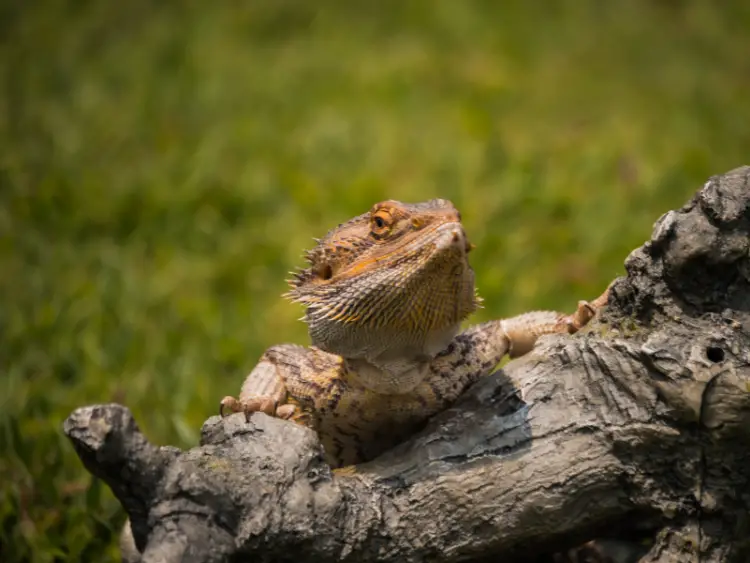
Ideal Temperature and Lighting
To ensure a bearded dragon’s health and happiness, it is important to maintain ideal temperature and lighting conditions in their habitat. Bearded dragons need a temperature gradient within their enclosure, with a basking spot of around 95-110°F (35-43°C) and a cooler end ranging from 75-85°F (24-29°C).
These temperatures can be achieved using a combination of heat lamps and ambient heaters. Providing a UVB light is also crucial for their overall health and calcium metabolism. Replace this light every 6-12 months to ensure its effectiveness.
Proper Diet and Supplements
Bearded dragons are omnivores, which means they require both greens, vegetables, and protein sources. A balanced diet for adult beardies consists of 80% greens and vegetables, such as kale, collard greens, and squash, and 20% protein, including insects like crickets or dubia roaches.
Younger bearded dragons need more protein, so adjust their diet accordingly. Additionally, calcium and multivitamin supplements are essential for their overall health. Dust feeder insects with calcium supplement every other feeding and provide multivitamins once a week.
Enclosure Setup
An appropriate enclosure setup is vital for the well-being of a bearded dragon. Adult bearded dragons require a minimum of a 75-gallon vivarium or terrarium, providing ample space for essential elements like a basking spot, hides, and shelter.
For substrate, use clean, non-particle materials, such as reptile carpet, newspaper, or tiles to avoid impaction risks. Add plants, vines, or branches to improve the housing, but make sure not to overcrowd the enclosure and leave sufficient space for activities.
Hygiene and Cleaning
Maintaining a clean habitat for your bearded dragon is key to ensuring its health and longevity. Regularly remove waste, uneaten food, and shed skin from the enclosure. Disinfect the entire vivarium once a month using reptile-safe cleaning products. Keep a separate container for the dragon during cleaning.
Regular baths can help with digestion and hydration, recommended at least once a week. Always use warm water without soaps or detergents, and monitor the temperature closely during the bathing session.
Handling and Interaction
Handling your bearded dragon regularly is essential for building trust, promoting social interaction, and monitoring their health more effectively. Start by gently placing your hand under the dragon’s belly, lifting them slowly, and supporting their entire body. Hold the dragon securely but gently, allowing them to feel comfortable.
Keep the handling sessions brief, especially in the beginning, and gradually increase the duration as your dragon acclimates to the interaction. Consistent handling ensures a docile and friendly pet, and don’t forget to perform regular health checks with a reptile vet to ensure their well-being.
How Long do Bearded Dragon’s Live? | Average Lifespan, Watch this:
Breeding and Reproduction
Sexual Maturity
Bearded dragons reach sexual maturity between 1 and 2 years old. At this stage, females start to produce eggs, and males begin to display breeding behaviors. It is essential to ensure proper care and nutrition for your bearded dragon, as their overall health will affect their reproductive abilities and lifespan.
Breeding Process
When breeding bearded dragons, make sure to separate males from females until the breeding season arrives. Introduce the pair and observe their behavior closely. Males may bob their heads to signal their interest in mating, while females may show submissive behavior, such as arm waving or slow movements.
After successful mating, separate the pair to avoid over-breeding and stress on the female. Monitor the female closely for signs of egg development, such as weight gain, restlessness, or digging.
Egg Care
Once the female lays her eggs, remove them from the enclosure and place them in an incubator. Use a vermiculite mixture to provide the eggs with the proper humidity and temperature.
According to an experiment by Siviter (2015), incubation temperatures impact the hatching time and behavior of bearded dragons:
- Cold group (27 ± 3°C | 80.6°F): Hatched in around 60 days.
- Hot group (30 ± 3°C | 86°F): Hatched in around 91 days.
Check the eggs regularly for signs of mold or any other issues. Do not rotate or change their position, as this may harm the embryos.
Impact on Lifespan
Breeding, especially for female bearded dragons, can take a toll on their overall health and shorten their lifespan. Bearded dragons that are not used for breeding typically live for 8-12 years in captivity under proper care.
However, females who are bred often may have a reduced lifespan due to the energy expended during the breeding process and egg production. To ensure the longest possible life for your bearded dragon, it is recommended to avoid using female bearded dragons for breeding if you prioritize their longevity.
Final Thoughts: How Long Can a Bearded Dragon Live
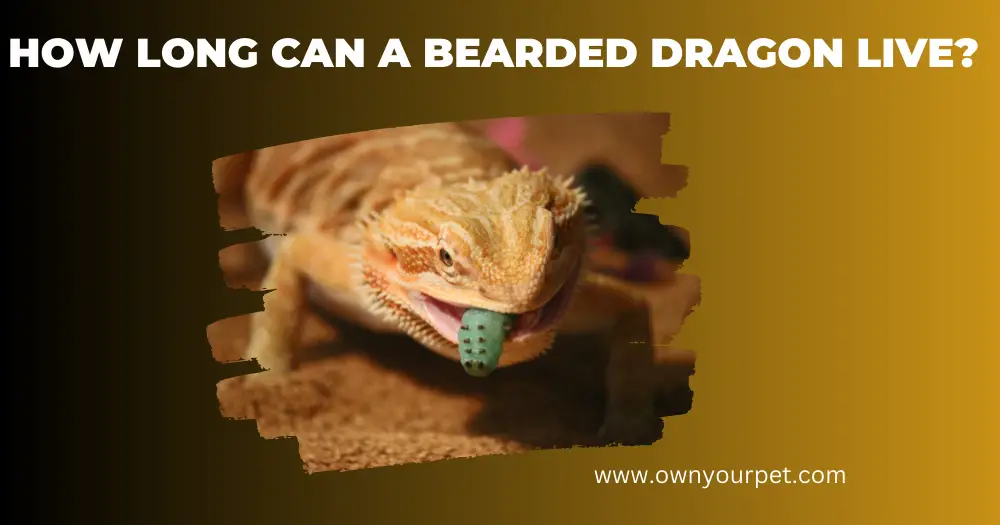
Bearded dragons, native to Australia, can live a relatively long life when provided with proper care and a suitable environment. In captivity, their average life expectancy ranges between 8-12 years, while in the wild, they tend to live between 3-8 years only due to the threat of predators and limited food availability.
Being bred in captivity greatly increases their lifespan, as domestic bearded dragons receive consistent care, access to food and water, and protection from predators. As they age, bearded dragons might face age-related diseases or health issues, which is why it’s crucial to keep track of their health, nutrition, and overall well-being.
These reptiles require a proper diet and a regulated environment to maintain their energy levels. Providing them with suitable habitats and controlled temperature settings can significantly improve their quality of life.
Ensuring that they get all of their nutritional needs met through a variety of supplements and a balanced diet will also contribute to their overall health.
Bearded dragons need adequate housing, heating, lighting, and a well-balanced diet throughout their lives. Paying attention to these factors and nurturing a healthy environment will improve their lifespans and offer them a happy and flourishing life in captivity.
